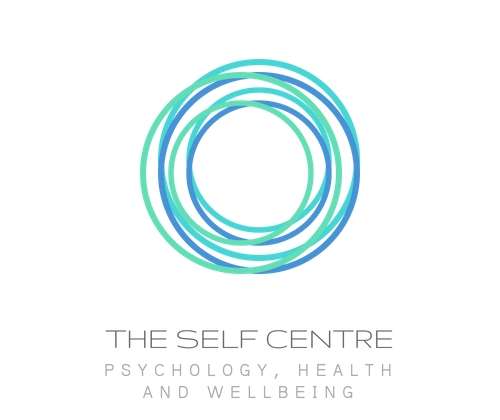
How to Combat Winter Blues: Practical Strategies for Mood and Motivation
Principal Clinical Psychologist and Practice Director
When winter settles in with its short days and long nights, even the most optimistic among us can feel our spirits dip. It’s not unusual to feel a little flatter or more fatigued at this time of year—and you’re certainly not alone if you find yourself wanting to hit snooze a little more often or losing motivation for your usual activities.
Not every dip in mood during winter meets the criteria for Seasonal Affective Disorder (SAD), a type of clinical depression. However, many people still notice seasonal changes in energy, sleep, appetite, and emotional resilience—what we sometimes refer to as the winter blues. These seasonal shifts can be mild or disruptive, and even if they’re not formally diagnosable, they’re very real and worth paying attention to.
Understanding how winter impacts your wellbeing—and taking proactive, compassionate steps to support yourself—can help you stay emotionally well through the colder months.
Understanding the Winter Blues
In Australia, the winter months bring fewer hours of daylight and colder temperatures. While some people feel only mildly affected, others may experience more persistent sadness, fatigue, irritability, and a loss of enjoyment in daily life.
From a psychological perspective, these changes often relate to reduced exposure to sunlight. Shorter days disrupt our circadian rhythms—the body’s internal clock that helps regulate sleep, mood, energy, and hormone production. Less light can increase melatonin levels (which makes us feel sleepy) and decrease serotonin (which supports mood and motivation).
These biological shifts can affect how we feel, think, and function. Understanding that this is a physiological response—and not a personal weakness—can reduce self-criticism and encourage helpful strategies to restore balance.
Practical Strategies to Stay Emotionally Well This Winter
1. Prioritise Morning Light
Morning light helps regulate your body clock and improves mood and alertness throughout the day. Studies published in Biological Psychiatry show that even 30 minutes of light exposure in the morning can significantly ease symptoms of seasonal mood dips.
- Try to get outside in the first hour after waking. A walk, standing on your balcony, or having breakfast by a window can all be effective.
- On darker days, consider using a light therapy lamp—often called a SAD lamp—which mimics natural sunlight and is most effective when used consistently in the morning.
- Even on cloudy days, natural light is still beneficial—so open your curtains early and position yourself near windows when possible.
TSC Helpful Tip: If you work in an office, a lunchtime walk outside can give your system a helpful midday boost.
2. Keep Moving—Even When You Don’t Feel Like It
Exercise is one of the most powerful ways to boost your mental health—especially during winter when energy can be low.
- Physical activity increases endorphins and serotonin, which help improve mood, concentration, and sleep.
- The key is consistency, not intensity. Gentle movement such as yoga, dancing, Pilates, swimming, or walking is enough to make a difference.
- If motivation is a barrier, start with five minutes. Often, once you begin, your body and mind follow.
TSC Helpful Tip: Try pairing movement with something enjoyable—like listening to a favourite podcast or calling a friend during your walk.
3. Stick to a Daily Routine
The lack of sunlight and colder mornings can tempt us to sleep in or abandon structure, but having a consistent routine can protect your mental health.
- Try to go to bed and wake up at roughly the same time every day, even on weekends. A 1–2 hour window is ideal.
- Eat regular meals to maintain blood sugar stability and energy.
- Schedule small things to look forward to—like an afternoon cuppa, a favourite show, or a cosy evening ritual.
TSC Helpful Tip: Creating predictable “anchor points” in your day can provide a comforting rhythm and a sense of stability during an otherwise sluggish season.
4. Stay Connected to Others
Social connection is a vital buffer against low mood, but winter can make it tempting to isolate. Make a conscious effort to stay in touch with others.
- Reach out to a friend for a quick walk, coffee, or phone chat.
- Join a group or community activity—even something low-effort like a book club or online group.
- Remember, meaningful contact doesn’t need to be long or intense. Small moments of connection count.
TSC Helpful Tip: Keep a list of “easy contact” people—those you can reach out to without pressure. Even texting a meme or sharing a thought can keep the connection alive.
5. Nourish Your Body and Mind
What you eat impacts your emotional resilience and energy levels. A nourishing winter diet supports both mood and immunity.
- Focus on whole, unprocessed foods rich in fibre, vitamins, and healthy fats.
- Include mood-supportive nutrients like omega-3s (found in oily fish, walnuts, flaxseeds), magnesium (leafy greens, nuts, legumes), and B vitamins (eggs, legumes, whole grains).
- Stay hydrated, and be mindful of relying on alcohol or caffeine to manage fatigue or mood, as they can disrupt sleep and amplify low moods.
TSC Helpful Tip Embrace warming, satisfying foods like soups, roasted veggies, or slow-cooked meals. Add lemon, herbs, and spices to lift flavour and mood.
6. Embrace Winter, Don’t Just Endure It
Sometimes our mindset can make winter feel harder than it needs to be. Instead of pushing against the season, try leaning into its slower pace.
- Create cosy rituals—candles, heated blankets, herbal tea, and a good book can create a sense of comfort.
- Explore indoor hobbies you don’t usually have time for during the busier months—puzzles, painting, journaling, cooking.
- Reframe the season as a time for rest, reflection, and slower living, rather than something to just “get through.”
TSC Helpful Tip: Make a “Winter Joy List”—a personal checklist of small things that make winter feel warm and comforting to you.
When to Seek Professional Support
If your low mood becomes persistent, you feel hopeless, struggle to function day-to-day, or have thoughts of self-harm, it’s important to speak to a health professional. Seasonal depression is treatable—and you don’t need to wait until things feel unbearable to reach out.
The Self Centre Psychologists help people work through periods of low mood so they can begin to feel fulfilled and vital once again.
Not sure if therapy is the right next step? Schedule a free 15-minute intake session with Lyndsay Babcock to see how we can work together.
Booking is easy:
- Visit our website at www.selfcentre.com.au.
- Click on the ‘Book a Free Intake Session’ button.
- Choose a time that suits you best.
Or, if you’re not ready for therapy, explore our Learning Hub, filled with bite-sized strategies to help you start making changes today.
You don’t have to navigate this alone. Support is just a click away.
